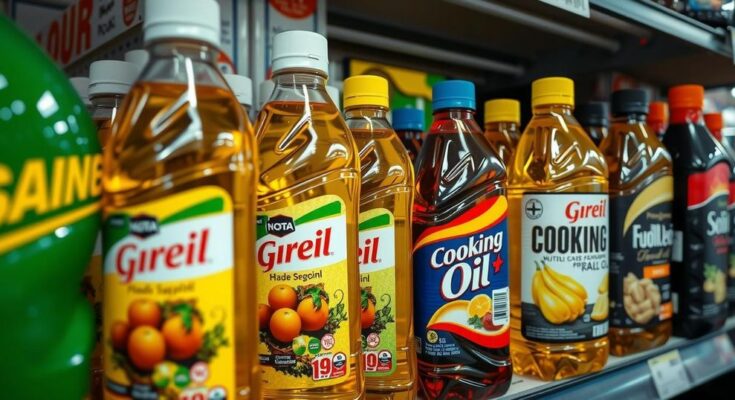The COMESA report indicates that cooking oil prices in Kenya were overcharged by 21%, costing consumers KSh 67.7 billion from July 2021 to December 2022. The findings show that prices increased more than necessary due to market monopolization and lack of competition. The report calls for enhanced regulatory measures to ensure affordable prices of this essential commodity.
A recent report released by the Common Market for Eastern and Southern Africa (COMESA) highlights that cooking oil firms in Kenya imposed a staggering 21% surcharge on consumers from July 2021 to December 2022. The findings of the COMESA Competition Commission (CCC) indicate that the fair price for cooking oil should have been approximately KSh 274 per litre; however, consumers were faced with prices reaching KSh 333 per litre. This resulted in an overall excess charge amounting to KSh 67.7 billion during this timeframe.
The report emphasizes that price hikes imposed by manufacturers outpaced the actual increases in crude palm oil costs. Furthermore, following a decline in crude palm oil prices in early 2022, the retail prices for cooking oil continued to remain artificially inflated into 2023, exacerbating the gap between production costs and consumer prices. The structure of the cooking oil market resembles an oligopoly, where a handful of companies exert control over the supply chain, from the procurement of raw materials to distribution.
This vertical integration, coupled with limited market competition, allows these dominant firms to set prices that prioritize their profits over market equilibrium. Historical data reveals a noticeable contrast between current prices and those from 2019 and 2020, when the cost of cooking oil stabilized around USD 1.6 (KSh 207) per litre before outrunning to KSh 333. This sharp surge in prices has severely impacted the food security of many Kenyan households, particularly among the economically marginalized segments of the population.
The financial repercussions of this unjust pricing extend beyond individual consumers; the KSh 67.7 billion that was overcharged represents a significant loss of potential investment in essential sectors such as job creation, educational funding, and healthcare system enhancements. In light of these serious findings, the CCC has underscored the necessity for improved regulatory oversight in markets involving essential commodities. Ensuring that cooking oil remains affordable for the public is vital, given its role as a fundamental component of the Kenyan diet.
The topic of cooking oil pricing in Kenya has gained significant attention due to the need for food security and economic stability in the region. The COMESA Competition Commission conducted a thorough investigation into the pricing practices of cooking oil companies, revealing practices that unfairly burden consumers. Understanding the dynamics at play in the cooking oil market aids in recognizing the broader implications on household budgets and national development.
In conclusion, the findings of the COMESA report shed light on the significant overcharging challenges faced by consumers in Kenya’s cooking oil market. The identified price surcharges not only strain household finances but also contribute to broader economic issues, hindering essential development opportunities. The emphasis on regulatory reform is crucial for ensuring fair pricing and access to affordable cooking oil, which is integral to the dietary habits of the population.
Original Source: www.mwakilishi.com




